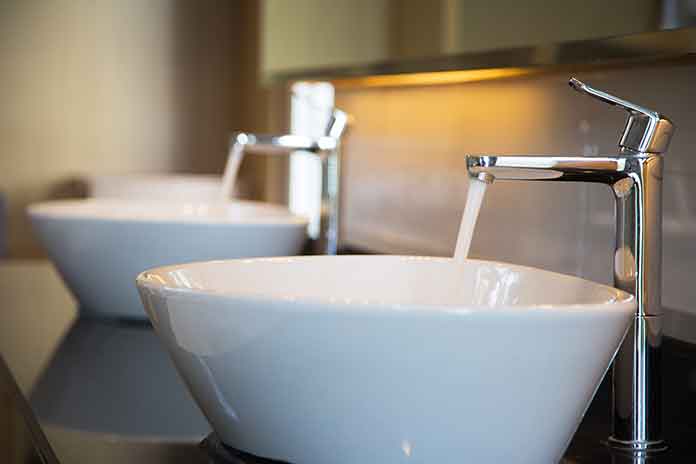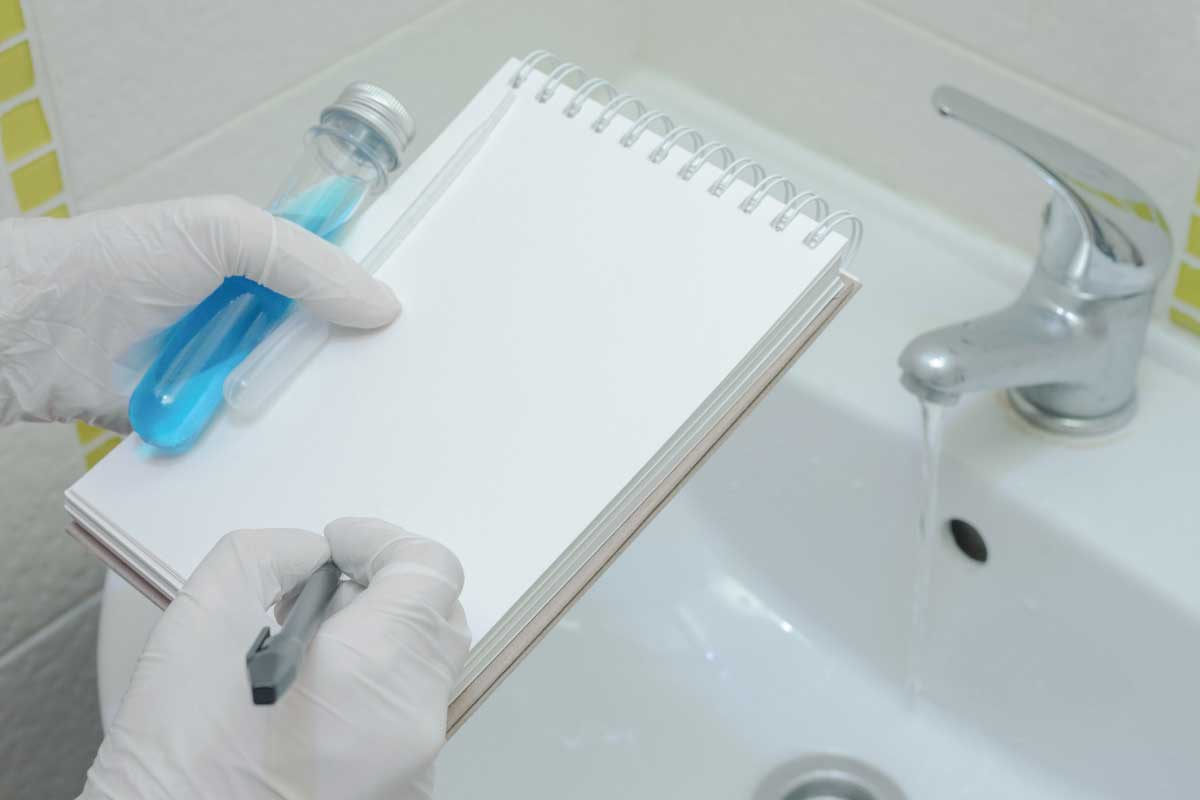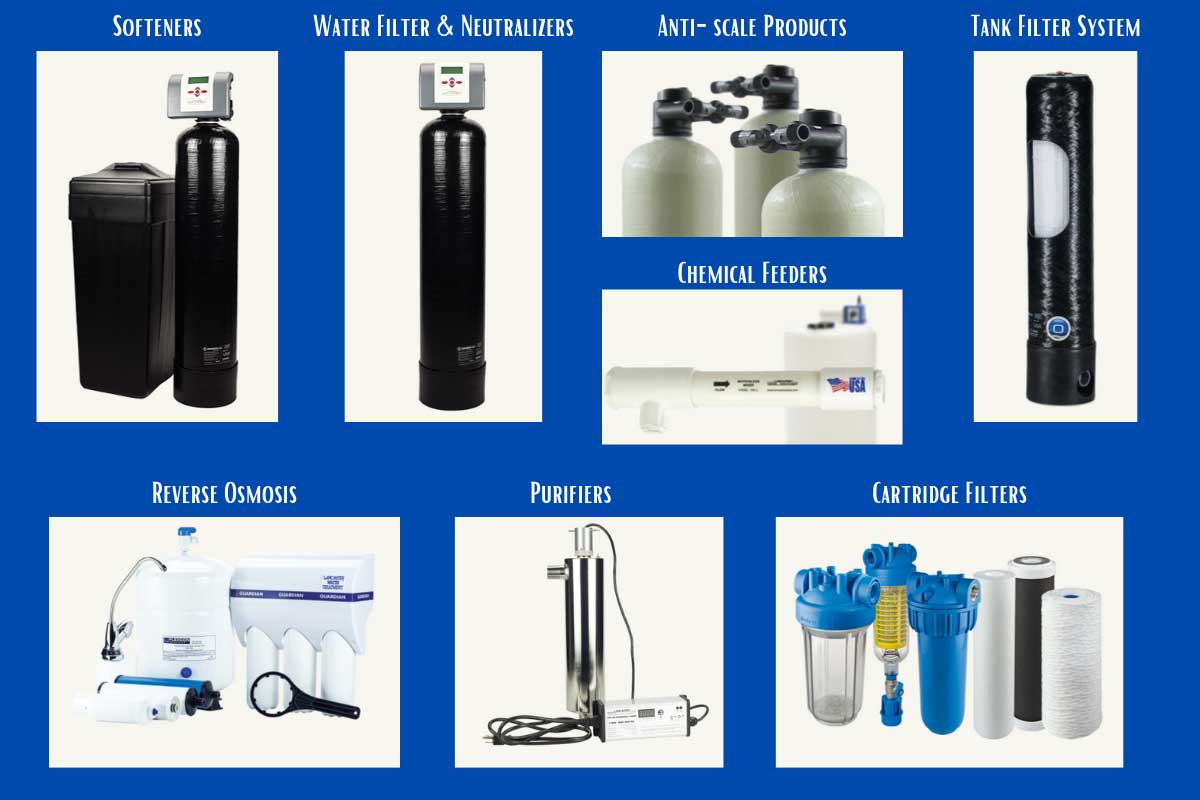Do I need a water filtration system for my well water?
There are many reasons to be concerned about the quality of your well water. It may have a funny taste, look cloudy, have particles floating in it, or you might be close to a gas station, factory or farm that causes you to worry about potential contaminants. Even if your water seems clean, there are many pollutants often found in well water that are harmful to your health.
Should I get my well water tested?
It’s likely that you’ve had your well water tested at some point, whether it was when your well was first dug or when you purchased your home. Virginia’s private well regulations require that new wells are tested for coliform organisms, which are harmful bacteria including E. coli.
However, some of the most harmful contaminants present in well water aren’t tested for in standard water testing, and any further testing of well water is considered to be the responsibility of the well user. If you live in Northern Virginia, it is important to educate yourself on the types of contaminants common to the area and have your well water tested for them.

How to Have Your Well Water Tested in Northern Virginia
Having your well water tested is the best way to ensure that your drinking water supply is safe, not only from bacteria, but from other harmful contaminants such as chemicals and radioactive elements. Having your water tested for all possible contaminants will allow you to know exactly what is in your water. You can then work with a professional to create a home water filtration system that delivers you the cleanest water possible.
You can send a sample of your well water sample directly to an accredited laboratory. To do this, you will usually collect the water sample yourself. If you decide to collect your own water sample, be sure to follow the lab’s instructions to be sure your water test results are accurate.
Well Water Testing in Northern Virginia
Call AirPlus today if you need help testing your water, reading your water test results, or selecting an appropriate home water filtration system based on contaminants in your water.
Is well water in Northern Virginia safe?
Well water quality varies greatly, even across short distances. The only way to tell if your well water is safe is to have it tested for all possible contaminants, not just for the bacteria a standard water test looks for.
There are many ways your well water could become contaminated. As rain seeps through the ground, it can pick up pollutants before going into your well. The most common pollutants found in well water include gasoline from gasoline storage or spills, road salt, fertilizers, pesticides, and household chemicals.
There are also natural contaminants commonly found in Northern Virginia’s drinking water, including bacteria, arsenic, iron, manganese, and radiological contaminants, most often radon.


Common contaminants Northern Virginia Well Water
Newly constructed private wells in Virginia are required to be tested for bacteria, but not other contaminants. However, there are other optional tests that are recommended by the Virginia Department of Health, including looking for bacteriological and radiological chemicals of concern in your water.
Since these tests are not required, it is up to the well user to determine which contaminants to test their water for. Even if you don’t suspect any well water problems, you should have your water tested to be sure it's safe to drink. Educating yourself on common contaminants in Northern Virginia well water can help you decide what you’d like to test your water for.
Bacteria in well water
Bacteria in well water is the most commonly tested for contaminant, as it can cause gastrointestinal illness. The recommended tests for bacteria in well water include total coliform and e-coli.
Radon in well water
Radon is a naturally occurring radioactive element, contained in the rocks in Virginia and other regions. Radon is colorless, odorless, and can dissolve in groundwater. It is harmful in your water because not only can drinking it result in stomach or bladder cancer, but inhaling it when it is released into the air, primarily in the shower, puts you at risk of lung cancer.
A radiological analysis test will look for radon, uranium, and gross alpha in your well water.
Petroleum in well water
Petroleum, also called crude oil, is a fossil fuel that is used to make gasoline, jet fuel, diesel, asphalt, oil, lubricants and other products.
You may want to test your well water for petroleum constituents if you know or suspect there has been nearby petroleum storage or use, including home heating oil tanks. You may also consider a petroleum test if you detect the smell or taste of it in your water. A baseline petroleum constituent analysis will test your well water for benzene, toluene, ethylbenzene, total xylenes, naphthalene, and MTBE.
Herbicides or Pesticides in well water
If your well is within 50 feet of a building treated for termites or other pests before 1990, it’s a good idea to test your water for herbicides and pesticides. If herbicides or pesticides have been applied near your well or your well is located near an agricultural operation such as a farm, you should also have the water tested. If you choose not to have this test done and your well water test comes back with elevated nitrite or nitrate levels, it is likely you also have herbicides or pesticides in your water.
What else should I test my well water for?
To get the best tasting and safest water for your home, consider also testing your water for alkalinity, arsenic, cadmium, chromium, bacteria, chloride, copper, fluoride, hardness, iron, lead, manganese, mercury, nitrite/nitrate, pH, sodium, sulfate, total dissolved solids, and turbidity, as well as any other suspected contaminants.
Water Filtration Systems

What kind of home water filtration system do I need for my well water?
It’s important to have the safest drinking water possible in your home. A home water filtration system is an important investment for your health and the health of your family.
Once you’ve had your water tested, be sure to keep a record of all your water tests for future reference, so that you can see if a contaminant level changes over time and be sure your water treatment system is working well.
You should choose a home water filtration system that is well suited to remove whatever contaminants are specific to your water supply. Airplus can help you identify the best system to meet your family’s needs and work with you from planning to installation, as well as maintaining your system.
.2309121422550.png)

